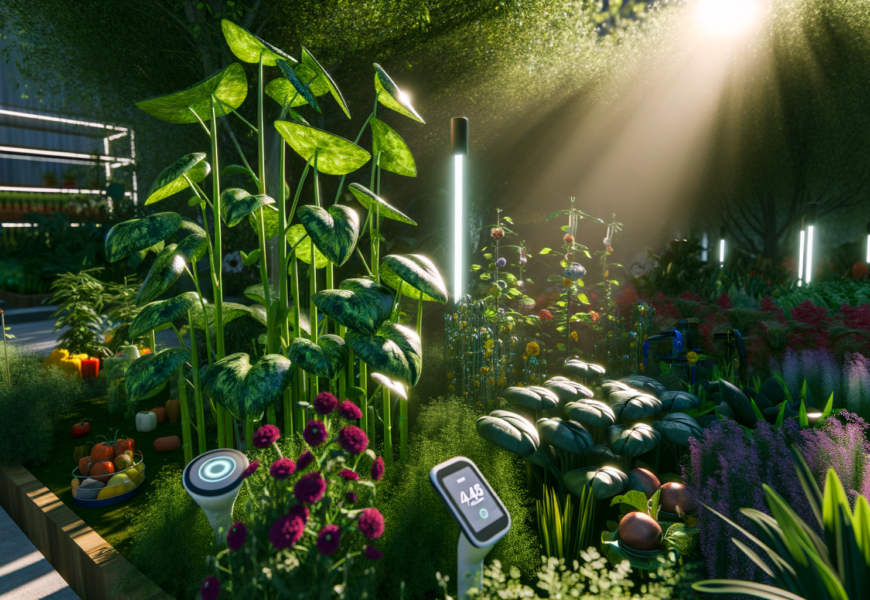Gardening enthusiasts and novices alike are gearing up for a promising 2024 gardening season. Whether you're planting your first seeds or refining your green thumb, our guide is here to help you achieve a lush, productive garden. Dive into this comprehensive guide packed with expert advice, innovative techniques, and sustainable practices. Let's embark on a journey to transform your gardening ambitions into reality.
Planning Your 2024 Garden
Creating a flourishing garden starts with meticulous planning. First, assess your garden space and its specific conditions. Understand the soil type, climate, and sunlight exposure your garden receives. These factors significantly influence your garden's success and help you select the appropriate plants. For example, climate-specific plants thrive when their environmental needs align precisely with your garden's conditions.
Once you've assessed your garden, it's time to select the right plants for your region—stance upon native plants gardening if you're aiming to support local biodiversity and ensure lower maintenance. Consider using garden planning software to streamline your efforts. These tools can offer insights into optimal planting schedules and are often rich with features like frost protection reminders and crop rotation benefits guidance.
Sustainable Gardening Practices
In today's environmental context, embracing sustainable land management is more important than ever. Start by integrating organic gardening techniques into your routine. These methods reduce the need for chemicals, enhancing soil health and promoting a more sustainable ecosystem. For instance, organic fertilizers can enrich calcium-rich soils, supporting robust plant growth without the adverse environmental impacts of synthetic options.
Water conservation is vital. Implement efficient garden irrigation systems such as drip irrigation setup or rainwater harvesting to minimize water use. By directing water precisely where it's needed, these systems not only save water but also promote healthy root depth optimization.
Supporting biodiversity is another cornerstone of sustainable gardening. Companion planting and pollinator-friendly plants invite beneficial insects, ensuring your garden’s health. Understanding the benefits of companion planting will allow you to naturally deter pests and enhance productivity without resorting to chemical interventions.
Seasonal Planting Guide
To maximize productivity, focus on a seasonal approach to planting. Starting with spring, the planting season for many regions, aim for nurturing perennials like roses and peonies along with annuals such as sunflowers. Indoor gardening tips can be particularly helpful here, allowing you to start seeds early indoors and transplant them once the weather warms.
Summer provides excellent conditions for heat-loving crops like tomatoes and peppers. If you're inclined towards vegetable gardening, this is the season to make your mark. Contrast this with autumn, where you might focus on frost-tolerant vegetables like kale and Brussels sprouts.
Winter doesn’t necessitate a halt in gardening activities, particularly with indoor garden setups. Utilize this season for propagating future plants, experimenting with seed starting indoors, and even maintaining a thriving herb garden. An understanding of planting zone guides will be pivotal in ensuring you pick the right crops regardless of the season.
Innovative Garden Techniques
Gardening in small spaces need not be restrictive. Techniques such as vertical gardening and container gardening provide substantial yields in confined areas. Balcony garden setups can be especially rewarding, allowing urban gardeners to maximize their urban gardening ideas creatively.
Exploring permaculture gardening principles could further transform your approach. This method emphasizes ecosystem balance, often integrating renewable garden energy sources and utilizing natural processes to create a self-sustaining environment.
Moreover, embrace technological advances in gardening. Smart garden technology, including smart irrigation systems, helps automate water delivery and optimize plant health. These innovations not only improve efficiency but also reduce the carbon footprint of your gardening practices.
Managing Common Garden Pests
Handling garden pests without chemicals requires knowledge and strategy. Start by identifying common pests and diseases specific to your plants. Integrated pest management strategies involve a combination of methods to keep pests under control. Alongside this approach, incorporate natural pest repellent options, leveraging plants themselves to deter unwelcome visitors.
Consider introducing natural predators, like ladybugs and native bees, which play a significant role in pollination and pest control. Emphasizing ecosystems around your garden precludes the need for potentially harmful chemical solutions.
Harvesting and Maintaining Your Garden
Efficient harvesting and comprehensive post-harvest care are key to maximizing your garden's yield. Use specific harvesting techniques tailored to each type of plant; this ensures that you get the most out of your produce without damaging future growth. Seasonal tasks such as mulching practices are crucial for maintaining soil health and protecting plant roots.
Composting and recycling garden waste close the loop on sustainable practices. Transforming organic waste into nutrient-rich compost not only reduces waste but also revitalizes soil, enhancing its fertility for future planting. DIY composting is an approachable way to embark on this cycle, even for beginners.
Gardening in 2024 promises to be an exciting venture with abundant opportunities for growth and sustainability. With the tips and strategies outlined in this guide, you're well-equipped to create a vibrant garden that's both beautiful and bountiful. Ready to get gardening? Start planning today and watch your garden flourish throughout the coming year. For more insights and updates, subscribe to our newsletter or join our gardening community.










